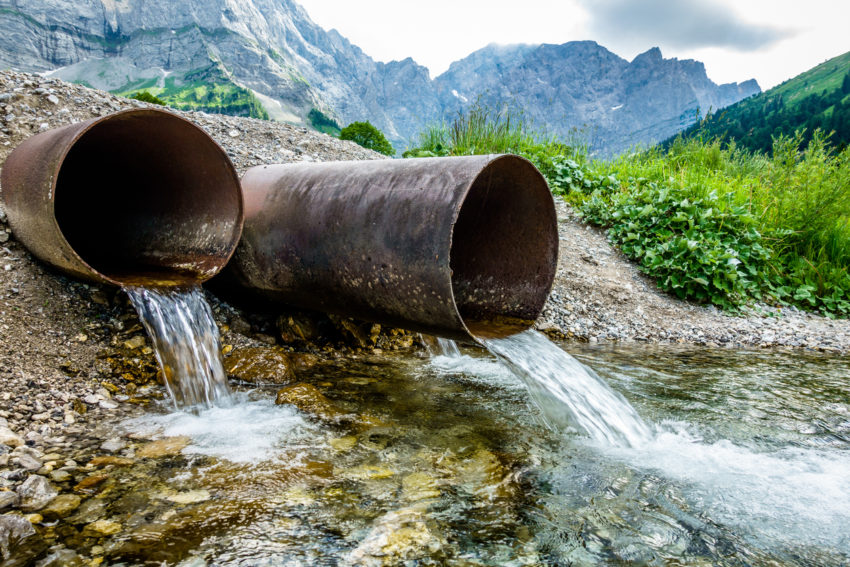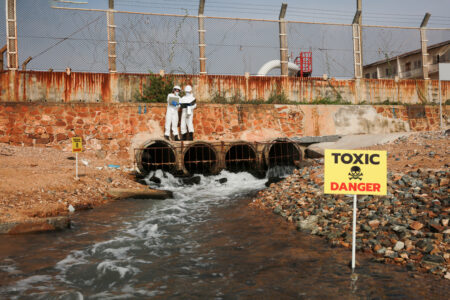
Share On Social!
In another move to reduce clean water protections, the EPA plans to enact another ruling that will make it easier for companies to remove hazardous waste through dumping.

This proposed directive would limit the protections of our rivers and lakes by allowing a loophole with greater flexibility for corporations to eliminate toxic waste by polluting the groundwater, according to Clean Water Action.
This plan follows in the footsteps of the agency’s recently proposed “Dirty Water Rule,” and is part of a seemingly wide-reaching effort to reduce environmental protection efforts.
The EPA wants your opinion on this proposed rule by June 7, 2019!
Email a Comment Now for Clean Water!
Dear EPA Office of Wastewater Management,
Access to clean water should be a foremost concern of your agency. The agency’s proposed groundwater rule will only go to further harm the natural environment and its waters, which is already at risk from other forms of pollution around the world.
The EPA cannot allow our planet to be gradually harmed only to help business thrive. Clean water access is a problem for nearly 1.6 million American citizens. Latinos, underserved communities, and people of color, who already face numerous environmental exposures, do not deserve to experience more difficulty.
The role of the EPA is to protect our environment, not the ease and comfort of corporations. Implementing this kind of ruling will have long-term ramifications and bolster the already growing threat of pollution consequences.
We all must begin taking the necessary steps to ensure the planet is habitable for our children and their children.
Issues Ahead
If the EPA’s groundwater rule in the Federal Register is enacted, it will limit the measures agencies around the country can take in ensuring clean water.
One of the main chemicals of concern, per- and polyfluoroalkyl (PFAS), compounds has the potential to greater pollute our waters through hazardous waste removal. PFAS’ harm can be seen on military bases across the country.
Service members and their families have experienced significant health consequences from exposure to these substances.
This ruling would only potentially amplify the number of people exposed and the harm caused.
“On Monday, April 15, 2019, EPA announced that it would not protect surface waters contaminated with pollution that first moves through groundwater,” according to a campaign by Clean Water Action. “This is a complete reversal from how EPA and states have acted in the past. The agency has required permits for this type of pollution for decades and it’s reckless to reverse course now.”
Comments and Concerns
Despite backlash from many scientific and environmental-justice groups, the EPA feels this ruling is fair.
“The agency concludes that the best, if not the only, reading of the Clean Water Act is that Congress intentionally chose to exclude all releases of pollutants to groundwater from the [point source] program, even where pollutants are conveyed to jurisdictional surface waters via groundwater,” the agency stated last month. 
Still, researchers and advocates alike are speaking out against this newest environmental protection rollback.
Thomas R. Carper, ranking member of the Senate Environment and Public Works Committee, stated that this ruling only goes to harm further people who are already facing a slew of environmental justice concerns.
“Administrator Wheeler said that safe drinking water is the greatest environmental challenge facing our world, yet, again, we see that EPA is not addressing this issue in the manner in which it demands, nor with the urgency in which Americans deserve,” Carper said.
The EPA wants your public comment on this proposed rule by June 7, 2019. Submit a comment today!
Editor’s Note: This article is part of a collaboration between Salud America! and the Hoffman Toxicant-Induced Loss of Tolerance (TILT) program at UT Health- San Antonio. To find out if you are TILTed due to exposure to everyday foods, chemicals, or drugs, take a self-assessment or learn more about TILT.
By The Numbers
1
Quick Survey
Can help you find out how chemically sensitive you are



